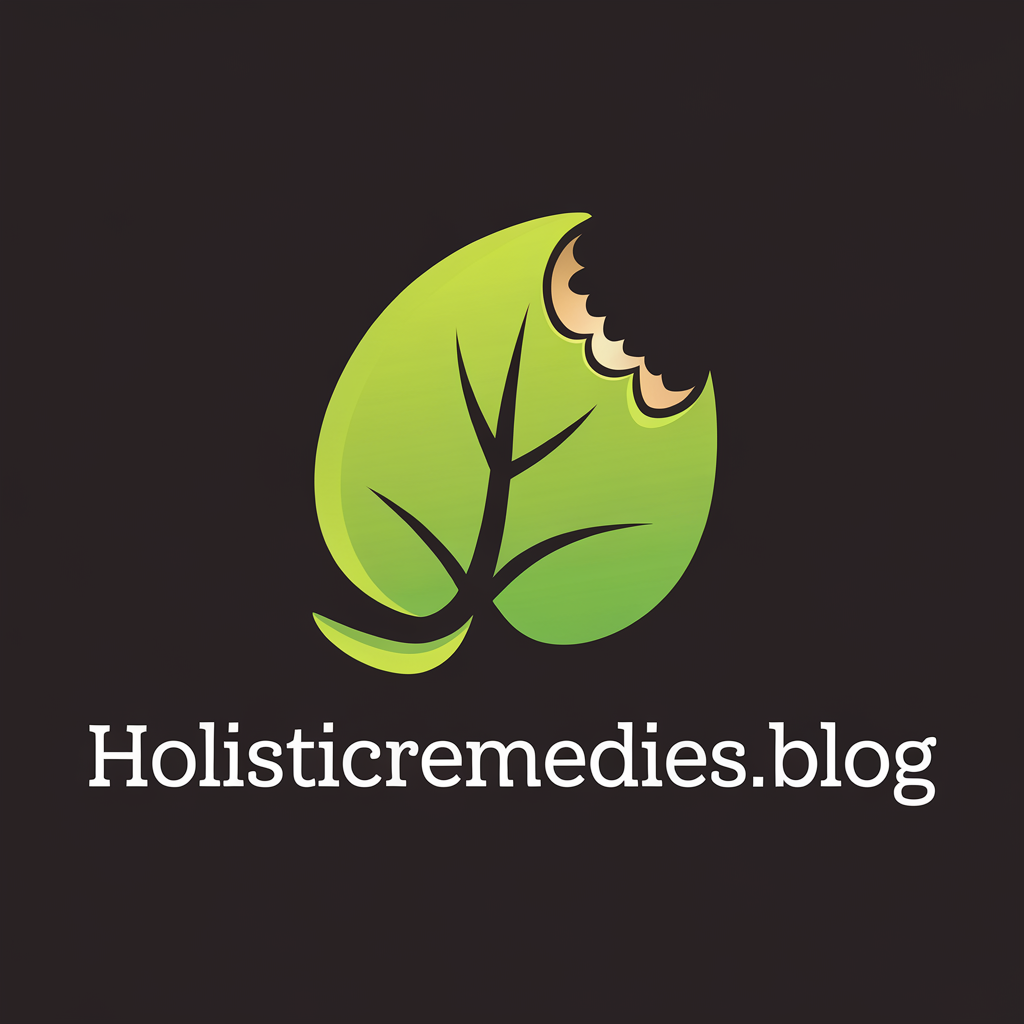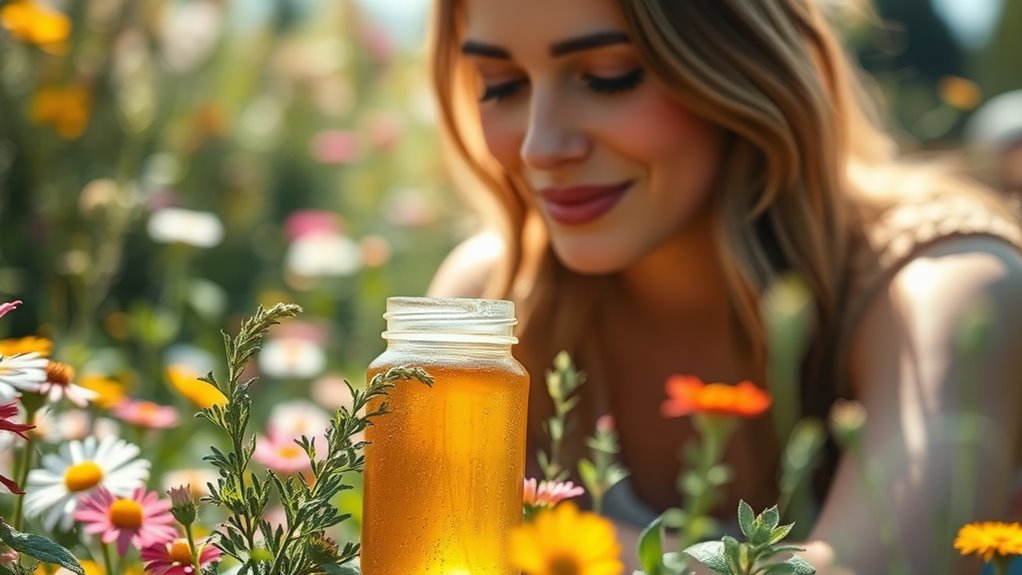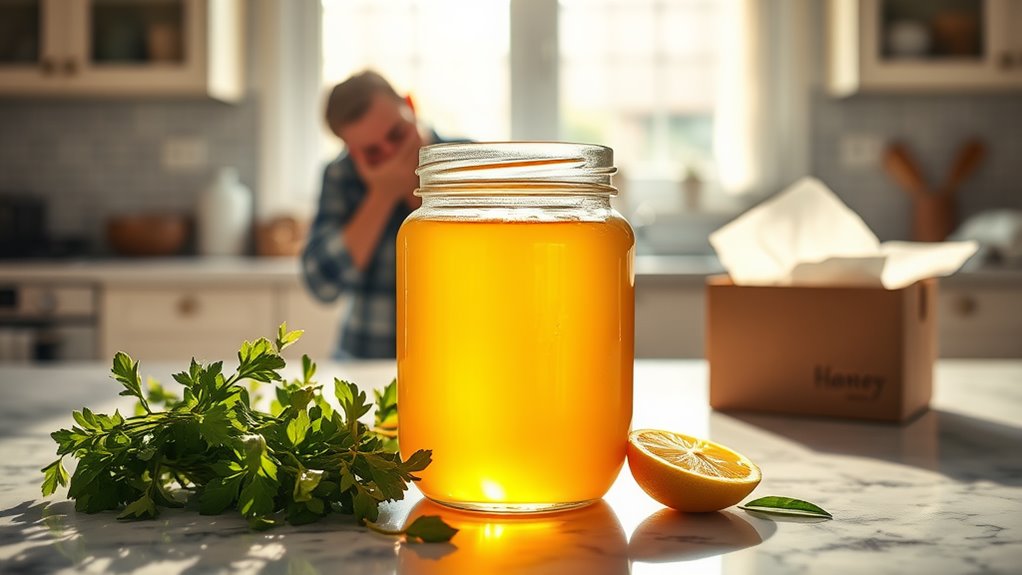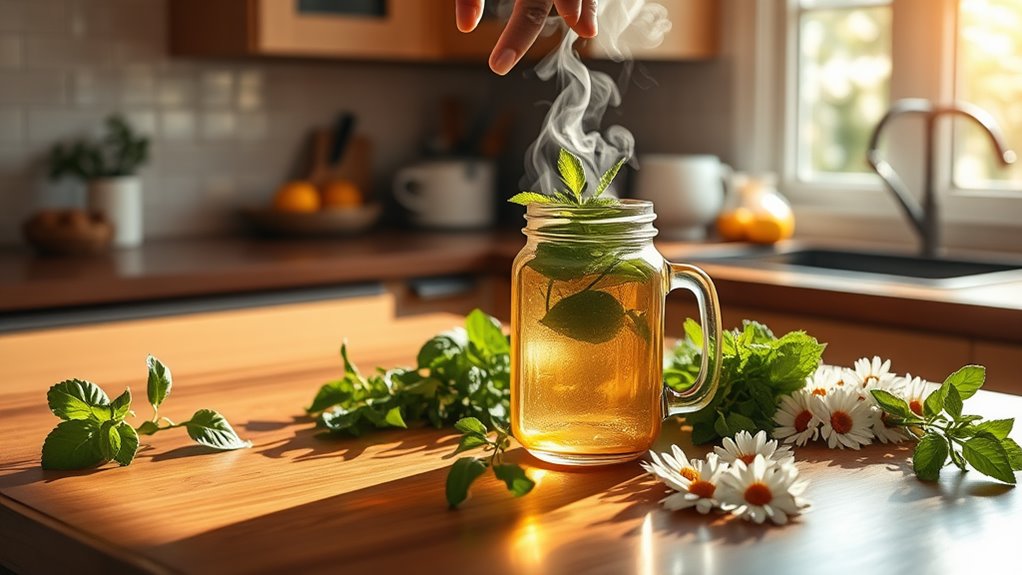Allergy Sufferers Swear by This Natural Cure!
Allergy sufferers swear by local honey as a natural remedy that might ease their symptoms. This sweet treat contains trace amounts of local pollen, potentially helping you build immunity over time. You can stir it in your morning tea or drizzle it on yogurt for a tasty boost. However, it’s important to be cautious, as results can vary, and it’s not safe for everyone. Keep exploring how other remedies can also support your allergy relief journey!
The Science Behind Local Honey and Allergies
When you consider natural remedies for allergies, local honey often comes up as a popular option. Many believe that consuming local honey can help your body build immunity to pollen and other allergens in your area.
This idea stems from the concept of microdosing—by exposing yourself to small amounts of allergens, your immune system may become more tolerant over time. Local honey contains trace amounts of pollen, allowing you to gradually acclimate to it.
Plus, it’s a delightful treat that connects you to the local community and supports local beekeepers. While research is still ongoing, many allergy sufferers feel a sense of belonging when they share their honey experiences, creating a supportive network that thrives on natural solutions.
How to Incorporate Local Honey Into Your Diet
Although incorporating local honey into your diet may seem simple, it offers a delicious way to potentially reduce allergy symptoms. By adding this sweet treat to your meals, you can join others who enjoy its benefits.
Here are three easy ways to include local honey in your diet:
-
Morning Boost: Stir a spoonful into your morning tea or coffee for a natural sweetener that warms your soul.
-
Yogurt Delight: Drizzle it over yogurt or oatmeal for a nutritious breakfast that feels like a hug.
-
Salad Dressing: Mix it into homemade salad dressings for a flavorful twist that brings your meals to life.
Embracing local honey not only enhances your dishes but also connects you to your community’s bounty. Enjoy the sweetness!
Real-Life Success Stories From Allergy Sufferers
Allergy sufferers often find hope in real-life success stories that highlight the effectiveness of natural remedies. Hearing how others have conquered their allergies can inspire you to try these solutions yourself. Here’s a glimpse of some inspiring experiences:
| Name | Success Story |
|---|---|
| Sarah | Switched to local honey; her seasonal allergies improved significantly. |
| Tom | Used essential oils; he reported fewer allergy attacks. |
| Emma | Incorporated probiotics; she noticed reduced symptoms. |
| Jake | Started a local bee pollen regimen; his sneezing lessened. |
| Lisa | Tried a herbal tea blend; her breathing improved. |
These stories create a sense of community and encourage you to explore natural remedies. You’re not alone in this journey!
Potential Risks and Considerations
While real-life success stories can be inspiring, it’s important to consider potential risks and challenges when exploring natural remedies for allergies. You might feel drawn to these alternatives, but keep in mind:
-
Allergic Reactions: Just because something’s natural doesn’t mean it’s safe for everyone. Some people may have sensitivities to certain herbs or ingredients.
-
Inconsistent Results: Not all remedies work the same for everyone. What helps one person may not provide relief for another.
-
Lack of Regulation: Natural products aren’t always thoroughly tested, meaning the quality and potency can vary widely.
Being informed helps you make the best choices for your health. You’re not alone in navigating this journey; many others are looking for effective and safe solutions too.
Expert Opinions on Natural Remedies for Allergies
As you explore natural remedies for allergies, it’s essential to consider what experts have to say. Many health professionals recognize that certain natural options, like local honey and probiotics, may help alleviate symptoms for some individuals.
They often emphasize the importance of understanding your unique situation—what works wonders for one person mightn’t for another. Experts urge you to approach these remedies with an open yet cautious mindset.
They recommend consulting with a healthcare provider before diving into any new treatment. Sharing experiences within your community can also provide valuable insights.
Frequently Asked Questions
Can Children Consume Local Honey for Allergies?
Yes, children can consume local honey for allergies. It’s believed that local honey helps build immunity to pollen. Just make sure your child is over one year old to avoid any risks. Enjoy the sweetness!
How Long Does It Take to See Results?
You’ll likely start noticing improvements in your allergies within a few weeks of consistent use. Everyone’s different, though, so be patient and give it some time to work its magic for you!
Is There an Age Restriction for Using Local Honey?
There isn’t a strict age restriction for using local honey, but it’s best to avoid giving it to children under one year old. Always consult with a healthcare professional if you’re unsure about its use for anyone else.
Can Local Honey Help With Food Allergies?
Local honey might not directly help with food allergies, but its anti-inflammatory properties can support your overall immune system. You’ll want to consult a healthcare professional before trying it for specific allergy relief.
Are There Alternative Natural Remedies for Allergies?
Absolutely! You can explore alternatives like quercetin, vitamin C, and probiotics. Each may help reduce allergy symptoms by boosting your immune system. It’s all about finding what works best for you and your unique needs.





